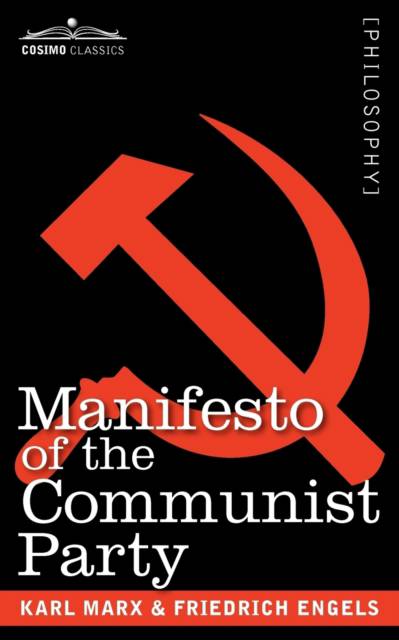
- Retrait gratuit dans votre magasin Club
- 7.000.000 titres dans notre catalogue
- Payer en toute sécurité
- Toujours un magasin près de chez vous
- Retrait gratuit dans votre magasin Club
- 7.000.0000 titres dans notre catalogue
- Payer en toute sécurité
- Toujours un magasin près de chez vous
13,95 €
+ 27 points
Format
Description
"With the clarity and brilliance of genius, this work outlines the new world outlook, consistent materialism, which also embraces the real of social life, dialectics, as the most comprehensive and profound doctrine of development, the theory of the class struggle and of the world-historic revolutionary role of the proletariat-the creator of a new, communist society." -Lenin Ironically, The Communist Manifesto, first published in 1848 for the Communist League, had little influence in its own day. Only after Karl Marx and Friedrich Engels' other writings had made their views on socialism widely known did it become a standard text. For nearly century it was one of the most widely read - some would argue misread - texts in the world. Manifested in vivid prose, the Manifesto continues to irk the capitalist world, lingering as an eerie specter even after the collapse of those governments, which claimed to be enacting its principles. Certainly, the aim here is not create converts. Instead it is to help readers probe the writing with its distinct point of view, so that we might understand the political and historical significance of the text while still maintaining a stance that allows us to think critically about the subject and form our own opinions. KARL MARX (1818-1883) was a philosopher, social scientist, historian and political revolutionary. He is indisputably the most influential socialist thinker to emerge in the 19th century. Although scholars largely ignored him in his own lifetime, his social, economic and political ideas gained rapid acceptance in the socialist movement only after his death. Born to a bourgeois family, FREDERICK ENGELS (1820-1895) devoted his life to struggling for the poor and oppressed. As a man of principle, he spent much of his time developing theoretical ideas and to his 50-year commitment to revolutionary socialism. Engels sustained an equally strong personal commitment to Karl Marx, who he supported politically, financially and with a deep friendship for 40 years, until the relationship was broken by Marx's death in 1883.
Spécifications
Parties prenantes
- Auteur(s) :
- Editeur:
Contenu
- Nombre de pages :
- 96
- Langue:
- Anglais
Caractéristiques
- EAN:
- 9781596057883
- Date de parution :
- 01-04-06
- Format:
- Livre broché
- Format numérique:
- Trade paperback (VS)
- Dimensions :
- 127 mm x 203 mm
- Poids :
- 113 g

Les avis
Nous publions uniquement les avis qui respectent les conditions requises. Consultez nos conditions pour les avis.






